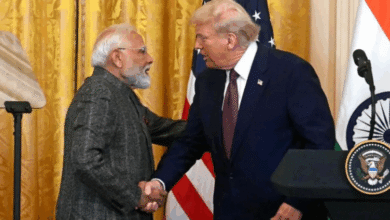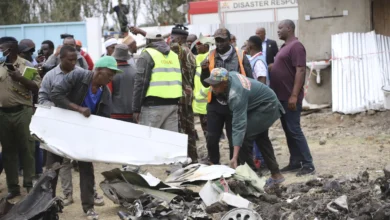Gabon Coup Alert: Military Officers Declare Takeover, President Under House Arrest
Insight into the Unprecedented Political Upheaval Sending Shockwaves through Gabon and Beyond

The country of Gabon has unexpectedly shot to the top of the global news cycle in an extraordinary and unexpected turn of events. This attention-grabbing issue has developed as a result of a brazen action by military personnel, who effectively planned a coup and detained the president of the nation. This development’s audacity and speed have echoed not only within Gabon’s borders but also throughout the complex web of international diplomatic circles.
Gabon, a place known for its lush rainforests and abundant oil reserves, is currently faced with an unprecedented political conundrum. Military leaders have attempted an audacious assault of the capital city with the support of their tenacious troops, essentially seizing control of key government facilities. Due to this change of events, the president—a long-serving incumbent—now finds himself confined to the walls of his official mansion, where he is under house arrest.
Faint echoes of discontent over the current administrative procedures have started to be heard as the dust settles and the puzzling motivations behind this bold power grab remain obscured. The people of Gabon have expressed a chorus of issues, ranging from severe economic disparity to serious accusations of state corruption. These hushed complaints, which had been floating around for a while, may have come together and given the military officials’ determined acts their motivation.

However, the effects of this unanticipated upheaval are felt well beyond Gabon’s borders. The prosperity of the country’s neighbors, whose economies are tightly entwined with those of Gabon’s oil exports, is intrinsically connected to the stability of the state. If any chinks in the previously flawless chain of oil supply were to appear, the cascading repercussions might theoretically cause a series of earthquakes to run through the complicated structure of the global energy market, casting a shadow over economies all over the world.
The international community has come together in a coordinated reaction that reflects the seriousness of the issue to resolve the unrest in Gabon. As a result of the abrupt and unexpected change of events, numerous governmental organizations and regional coalitions have expressed their shared apprehensions about the possibility of aftershocks that could shake the stability and peace of the area. A coordinated effort has been made through diplomatic endeavors to promote moderation and a peaceful resolution to this developing situation.
READ ALSO : AFRICA IS WAKING UP TO REALIZE THAT WE CAN’T CONTINUE TO BE PUPPETS – AFRICA ZION
There is still some hope despite the current tensions; this hope maintains that communication and negotiation are still alive and well. Leaders from around the world are raising voices of reason in a plea for peace, urging all interested parties to engage in dialogue and conversation rather than giving in to the violence’s siren song. The world community as a whole continues to hold tight to its optimism and yearns fervently for a peaceful solution that protects the interests of the Gabonese people.
The fabric of these events is inevitably woven with an undercurrent of economic instability. Political turmoil always causes a stir that makes the business climate unstable. Because Gabon depends so heavily on oil exports, even the smallest interruption in oil production or delivery can result in economic unrest that ripples across the country’s fiscal landscape. International investors and spectators from all over the world have been drawn into the spectacle and are closely watching for any potential earthquakes that could impact their assets in the center of Gabon.

But it’s critical that we remain conscious of the rhythm of the Gabonese people inside the prevailing narrative, which is defined by political unpredictability and economic ups and downs. Their daily activities directly intersect with these unfolding circumstances, and their collective aspirations for a secure and prosperous future continue to hang precariously precariously. As the tableau continues to take shape, it is imperative the utmost importance that the well-being and wishes of these people—those most affected by the crisis—remain at the forefront of our collective considerations.
The world’s attention is fixated on Gabon’s voyage as it navigates an unwavering course through these difficult waters. Similar to the deft brushstrokes of an artist, the decisions made in the coming days and weeks have the capacity to inscribe a lasting trajectory that will unavoidably shape the course of the country for future generations. We all hope that wise leadership, restrained diplomacy, and a steadfast dedication to the welfare of Gabonese citizens will serve as the compass that leads this country toward the horizon of a better tomorrow.




